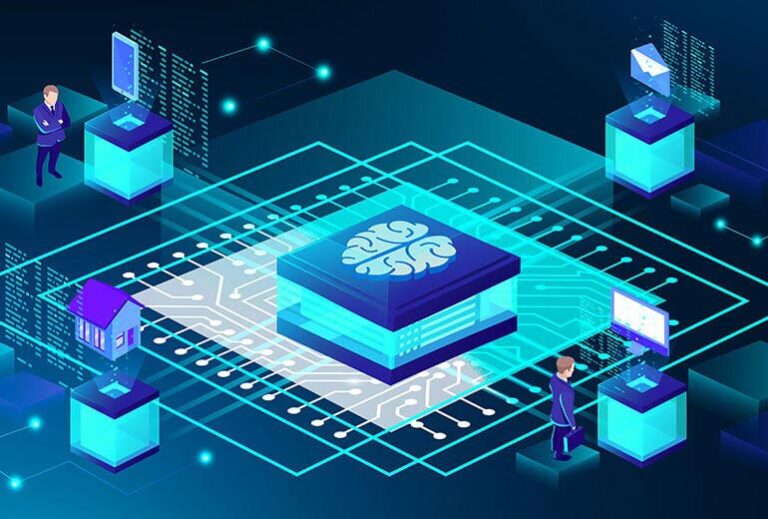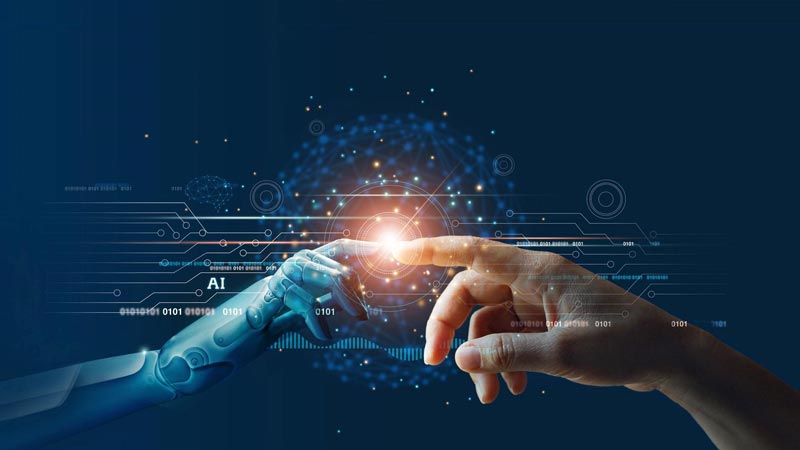Now that technology is advancing rapidly, will machine learning really be the next big thing? Therefore, machine learning has become an integral and very important part of contemporary technological equipment. Given the highly developed models created for different industries, from marketing all the way to healthcare, it’s easy to see why everyone has gotten so hooked. So learning how these machine-learning innovations are being used can assist developers in staying ahead of a field that is changing so rapidly. In this piece we’ll take a closer look at some exciting news in artificial intelligence/machine learning to explore the future.
Investigating the Potential of Machine Learning Development
Machine learning development is an interesting and changing field. This is where machine learning, a popular tool for improving all kinds of applications through the use of algorithms and statistical models comes in. Businesses and individuals both benefit from increased accuracy, speedier decisions and better predictions as a result of machine-learning development. Likewise, by applying machine learning to customer data analysis businesses can optimize their offerings or improve the machine learning market. However, users can benefit from the personalized recommendations algorithms provide. In the data-driven world, there are no limits to the advantages of doing machine learning development.
Machine Learning Technologies and Algorithms
In particular, emerging technologies and innovations as well as algorithms have made great progress in recent years. Stemming from these advancements is a sea of changes that are taking place now on the scientific frontier. The latest breakthroughs in the field include neural networks that are capable of learning from raw data and can be self-adaptive to different scenarios, as well as methods of unsupervised learning which dispense with the need for manual labeling of training data. These developments are propelling innovation in many different fields, from medical care to finance to entertainment. But as companies continue their investment in machine learning, the next generation of developments will surely be even more exciting.
Automated Machine Learning Improves Efficiency
The term Automated Machine Learning, or AutoML for short, refers to the process of automating all the time-consuming and complex tasks in developing machine learning models. This technology also offers several advantages, including greater efficiency and precision in the field. Data scientists and developers can drastically reduce the time spent on repetitive data processes, like data cleaning, feature engineering and model selection with AutoML. As for accuracy, the automated process means that human error is avoided at modeling stages. Also, AutoML makes insights and predictions more quickly. Therefore, it’s a valuable instrument in helping organizations to implement real-time data-driven decision making. Furthermore, it does not demand advanced coding skills and so can be used by those with limited techno-jargon. If we look at how AutoML makes it so much easier to deploy machine learning models, then of course its popularity in the business world is on the rise.
Find new ways to improve the effectiveness of machine learning.
Is machine learning, then, a is machine learning a technology still in development–and its enhancements also constantly evolving? But using these intelligent systems to their fullest extent requires novel means of adding functionality. Whether it’s better algorithms or new hardware layouts, researchers and engineers are always looking for ways to enhance machine learning performance. An area of innovation is neural architecture search, a technique that automates the design process for structures, producing extremely efficient and effective models. Further, the development of quantum computing could bring us another era of machine learning. For one thing, quantum computers operate at an exponentially faster rate than traditional ones to accomplish complex calculations As these and other new technologies are created and introduced into the machine-learning ecosystem, it will be interesting to see where they take us in terms of advances not only in artificial intelligence technology but also for humankind.
Predictive Maintenance and Optimization
As a result, predictive analytics has become an important tool for businesses trying to achieve the greatest efficiency in their operations. One of these applications is more specifically on maintenance prediction–predictive maintenance (PdM). Analyzing data of equipment and machines, as well as other relevant sources in the manner described above allows analysts to determine when maintenance is necessary. This way businesses can get ahead of problems with proactive rather than reactive repairs. This not only helps cut down downtime but also saves businesses money on expensive repairs and replacements. Apart from maintenance, predictive analytics can also be employed to optimize operations by making demand predictions and improving forecasts of sales as well as inventory management. With the right tools in place and proper expertise, organizations can better position themselves to cut costs, increase efficiencies or stimulate growth.
Chatbots Powered by AI to Improve User Experience
In recent years, AI-enabled chatbots have proved an important tool for improving user experience. As digital communication channels become more numerous, customers have come to expect an instant and individualized response from a business when they are dealing with it online. Chatbots, which combine natural language processing and machine learning to understand queries and respond accordingly have become low-cost. Automatizing repetitive tasks, collecting information on users ‘preferences and offering around-the-clock machine learning development services help make chatbots a game changer in how businesses approach customers. But as chatbots are becoming increasingly sophisticated, businesses are facing pressure to catch up and provide a smooth user experience.
Final Thoughts
In short, Machine Learning has transformed almost every industry because it allows machines to make intelligent decisions. It has given businesses greater control to automate operations and use data for insight. Moreover, breakthroughs in ML technologies including automatic machine learning and predictive analytics have accelerated the application of such tools. However, using such smart solutions as AI-empowered chatbots, companies can now offer an even better user experience through quick response times and personalization. Finally, as with the rapidly changing technological developments in today’s ML terrain itself, companies now have a huge stock of different machine-learning technologies and algorithms that produce greater accuracy in predictive maintenance and operations optimization.


0 Comments